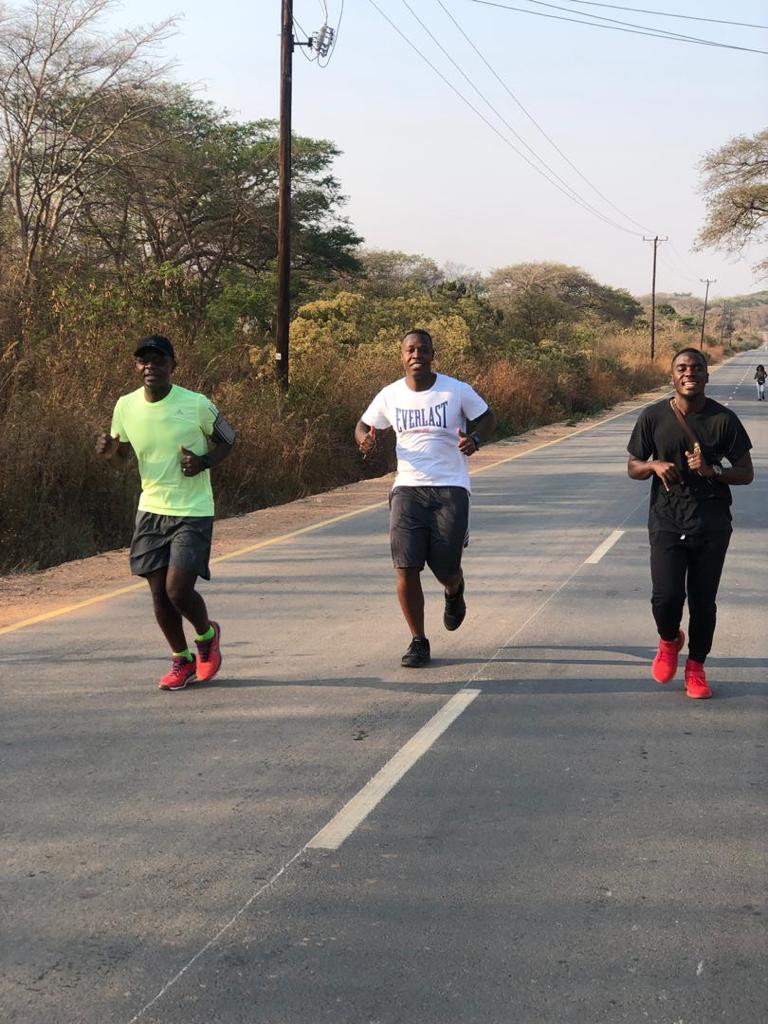|
I spent roughly 3 months training for my first marathon outing. I was mentored but I also learnt a great deal from personal experience and this is what I want to share with others. You don’t have to make my mistakes in your training and suffer unnecessarily on race day.
This is what my training looked like: My peak week mileage was 60 kilometers, and the average weekly mileage was 30 - 40kms which mostly comprised of 10 - 12 kilometer runs. The vast majority of these runs were steady state runs of moderate intensity and a few hard runs where I really pushed the pace when I felt good. My training was mostly intuitive based, which meant that my intensity was determined by how I felt on a given day. Overall, it was a pretty plain vanilla training plan. These are the mistakes I made: The biggest mistake I made was a one sided training program primarily consisting of steady state runs at moderate intensity on the same route, day in and day out. After belatedly reading Matt Fitzgerald’s 80/20 running book I’m now an advocate of running 80% of my runs at low intensity, and 20% at high intensity in a modified, polarized approach to training. I discuss the principles and benefits of this approach in a training article here. I didn’t prioritize the inclusion of quality workouts and higher weekly mileage. I ran a few long runs, with the longest being 26 kilometers but I did so sparingly. 30+ kilometers into my marathon race and I quickly started to regret this decision. Long runs in particular build endurance and fatigue resistance like no other. The more of them you do, and the longer the distance/time spent on your feet, the better off you’ll be. Higher weekly mileage is required to ensure adequate volume and higher fitness levels in a training block. The more you run, the better you'll get. I didn’t optimize my daily nutrition for performance and body re-composition. I was running what I felt was a fair amount of mileage so I decided to eat as I wished. I did lose quite a bit of weight training for the marathon but my unplanned eating choices led to me showing up to my race at a less than optimal weight. This started to burden me 2+ hours into the race. It’s simple: the lighter you are, the easier your race is going to be. When it comes to body composition, the less fat you have the better. High protein, moderate carbohydrates and low fat works well for a runner seeking body re-composition in the building phase of your marathon training prep. As you progress towards higher mileage and peak week, a high carbohydrate, moderate protein and low fat approach can then be adopted to support the training load, sustain performance output and maintain the physique you’ve built up. The training period of 3 months was inadequate and intuitive based training is unwise when you’re building up to race fitness. As a running coach I now recommend that all my clients wishing to run a marathon must train for a minimum period of 16 weeks and an optimal period of 20 - 24 weeks. With regards to intuitive based training, this approach is ideal only if you’re not actively preparing for a marathon. If you are preparing for a marathon, then you need a plan and you better stick to it. If it’s the right plan for you then it will help you improve, you just need to stay consistent. Unless you like to learn things the hard way, this is what you should do for a smoother marathon race experience:
Run smart. Don't make your marathon race experience a miserable one.
2 Comments
David Chansa
11/17/2020 10:27:00 am
My addition to this article is that you remember as you are training that you are not going to win the race. You are a participant, not a competitor!! The difference between the two is massive.
Reply
11/17/2020 10:55:39 am
Haha! Yes! Participant vs Competitor. This matter actually deserves its own blog post! I will certainly get to it in a bid to help others accept their reality and not take themselves too seriously! Running should equal fun:)
Reply
Leave a Reply. |
Nicholas MajulaCategories
All
Archives
August 2023
|


